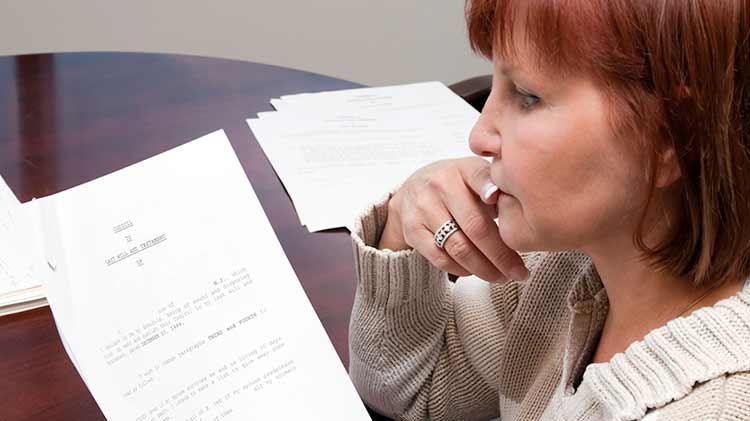What is digital estate planning?
As technology continues to evolve, it's vital to understand what happens to your online accounts when you can no longer manage them or pass away.
What happens to digital assets when you die?
So much of your life is digital now, so it's important to be prepared for the day when you're no longer able to manage all that digital information. Whether through illness or death, if you don't prepare for your digital estate, your beneficiaries or family may face challenges when trying to access digital assets. These challenges may arise from protected passwords, laws or regulations.
What are digital assets?
Digital assets are simply files that are stored electronically. Often people store their digital assets on a computer or a mobile device, but they can also be stored online so they're easily accessible by a number of different devices.
Digital assets can include items such as:
- Online banking accounts
- Contact lists
- Email accounts
- Social media accounts
- Photo storage/libraries
- Digital music/movies/books
- Cloud storage
- Cryptocurrency
- Travel accounts – air miles and hotel points
How do you create a digital estate plan?
The first step in creating a digital estate plan is to make a list of digital assets.
Even though a number of your digital assets don't have any monetary value, it's always a good idea to keep track of everything just in case something were to happen. Be sure to include the usernames, and passwords used to access each one so whoever takes over the management of your digital assets is able to access them easily, but don't forget to store it in a safe place when you're done.
Assigning assets
Now that you've created your list, the next step is to decide who should have access to each of your assets. For some assets, such as online bank accounts, it's a good idea to assign someone who is financially competent. For other assets, such as digital photo collections, you may want to grant access to your family or friends. Even for the assets you simply want to delete, it's still a good idea to assign those to someone so they're able to fulfill your wishes to delete those online assets if you're unable to do so.
Digital executor
Appointing a digital executor will help make sure your digital assets are handled the way you choose. It's important to appoint a digital executor and understand what assets can be passed along through a will and those that are non-transferrable. You may want to leave the executor specific instructions on how you want your digital assets to be handled following your death.
You can assign anyone to be your digital executor, but a lawyer or friend may help ease the burden on your family. It's a good idea to designate the digital executor in your will because a digital executor isn't a legally binding or enforceable designation.
Formalize it
Once, you've created your list, assigned all your assets and selected a digital executor, the last thing you'll need to do is make it a legally binding document. You should keep your digital estate plan separate from your will to keep strangers from having access to your usernames and passwords. In addition, keeping it separate will allow you to update your list as often as needed. To formalize it, but still keep it separate, you can make a note of it in your will or add it as a codicil to your will. Your digital estate plan should be stored in a safe place, such as with an attorney, online storage platform or a secure file cabinet. Whatever you choose, make sure the people managing your estate have instructions on how to get your plan.
Is it legal to store a will digitally?
More states are allowing online estate planning and robo-advisors through the Electronic Wills Act. You should check your state's estate laws to see if it is currently legal to store your will digitally. If you do decide to store your will digitally, make sure a trusted advisor is aware of the location and has access to it. You can learn more about different types of wills and trusts and learn how to write a will or estate plan.




